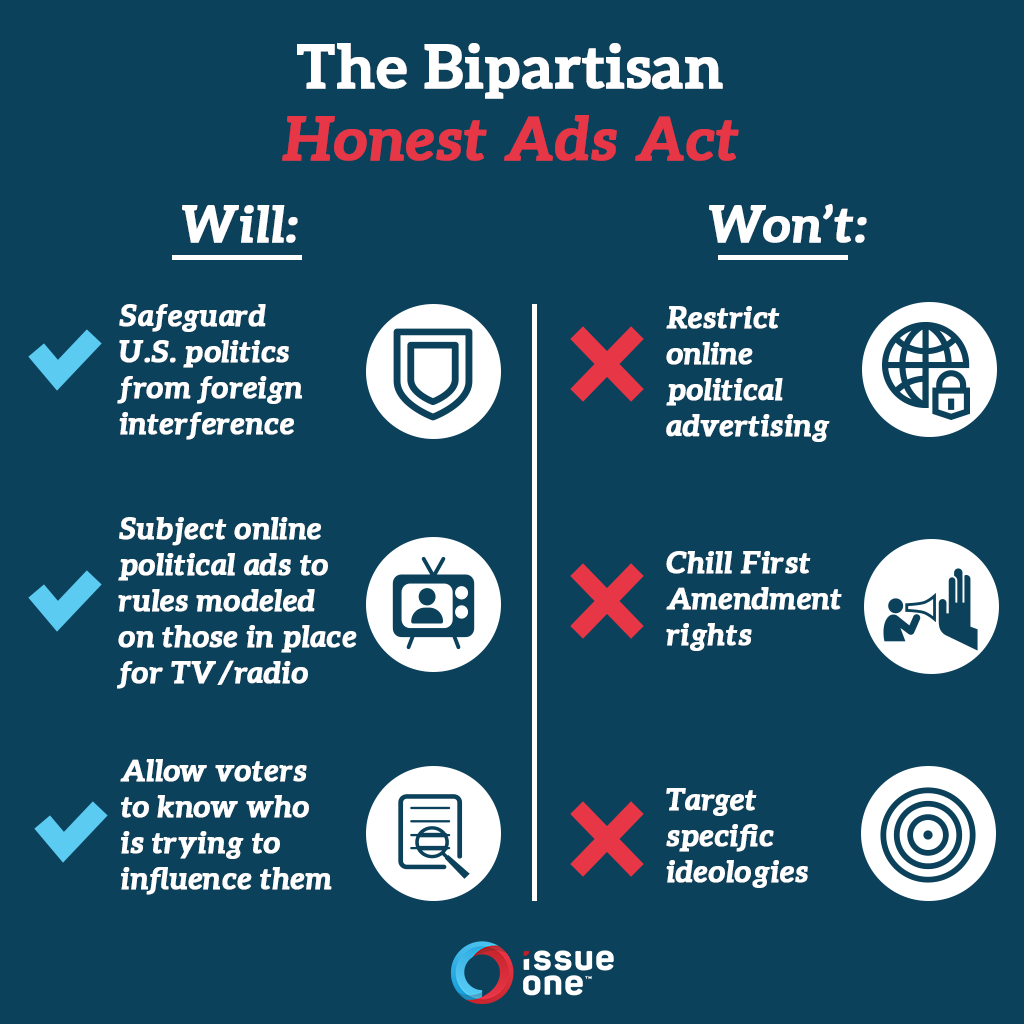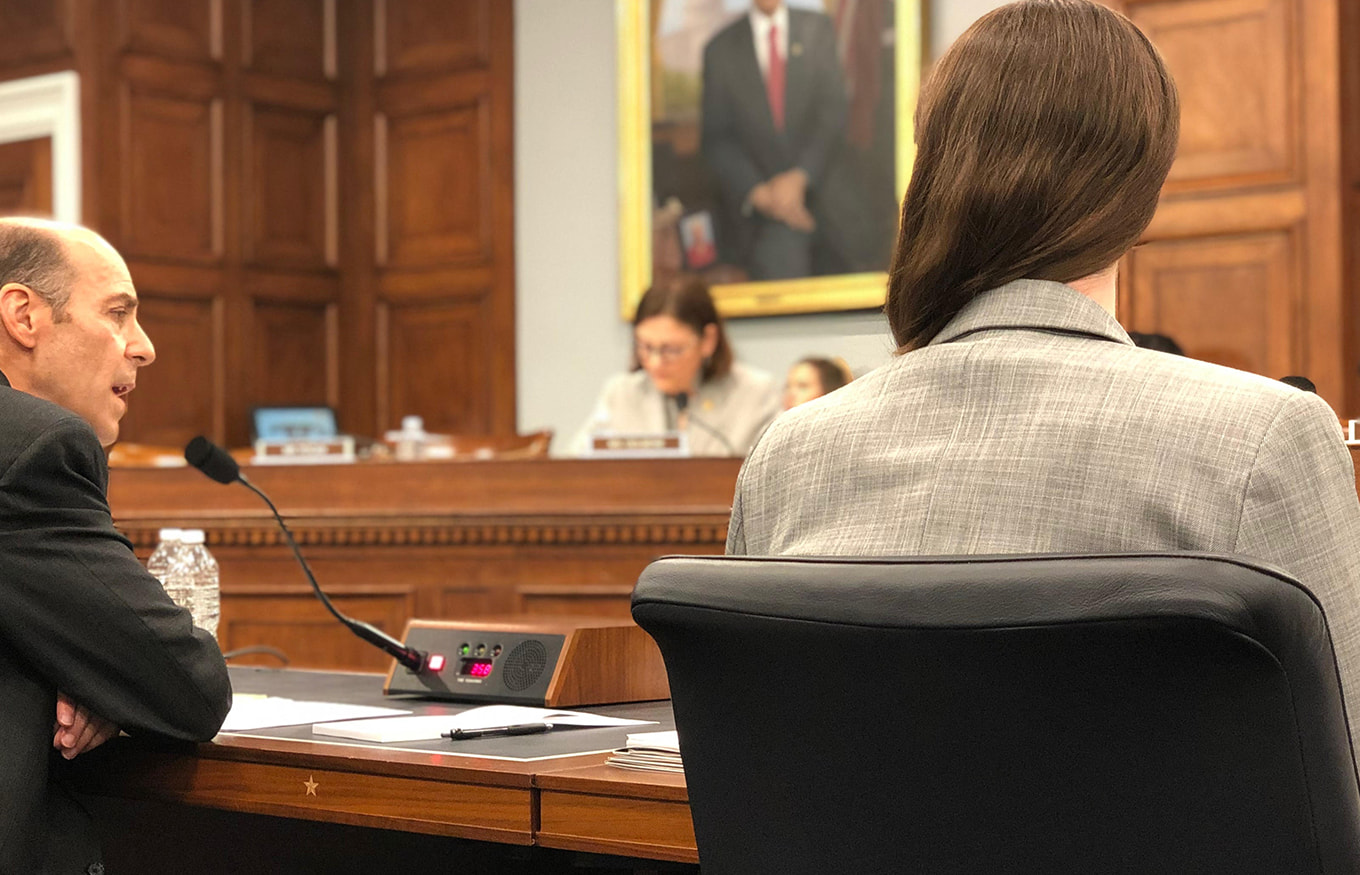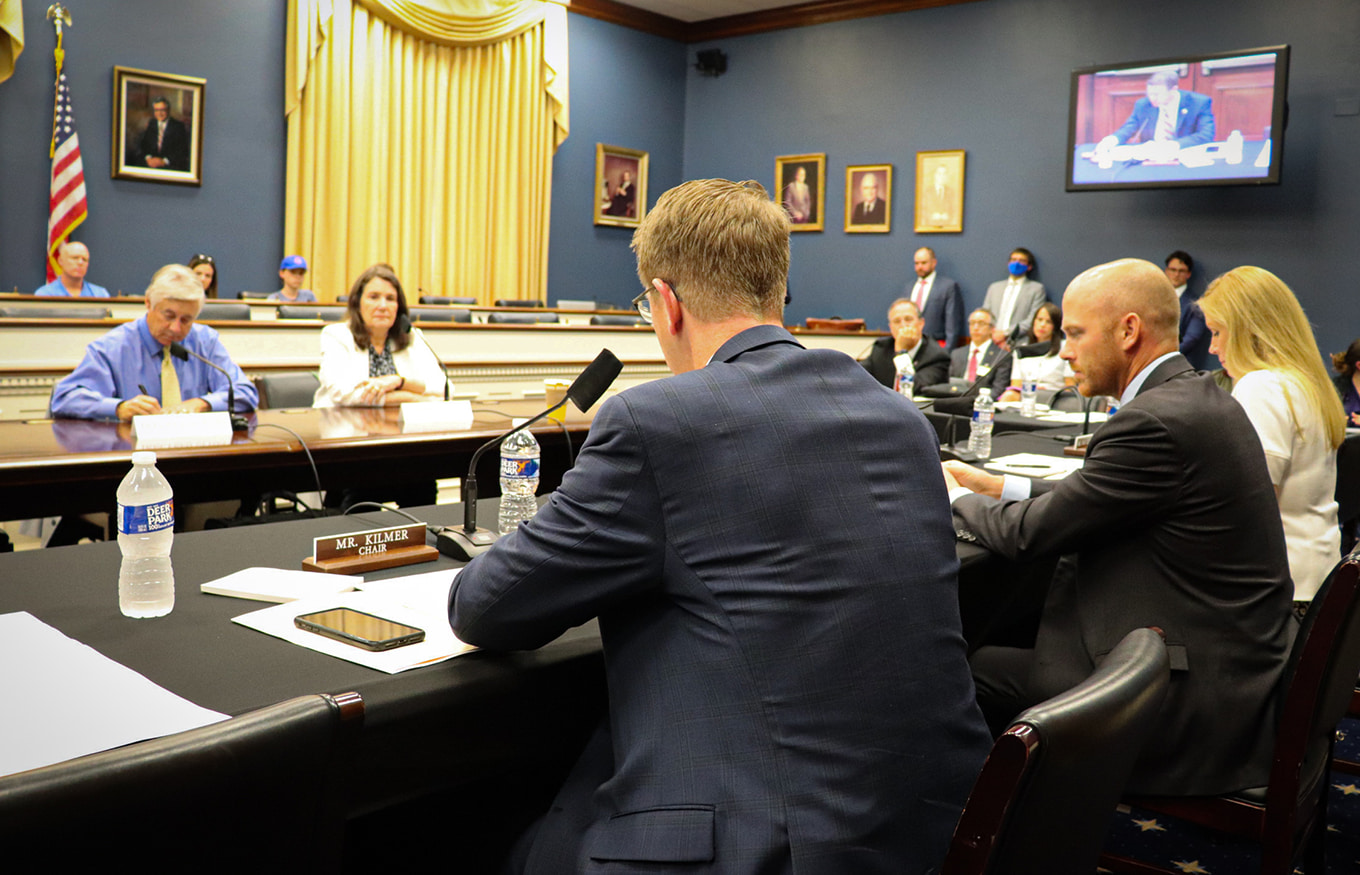As Facebook CEO Mark Zuckerberg testifies on Capitol Hill today and Wednesday about the company’s failures to combat foreign influence and protect user data during the 2016 elections, the bipartisan, bicameral Honest Ads Act has had a prominent place in the conversation. The act—which Issue One helped craft—is the best first step to combat the problem of hidden foreign disinformation campaigns targeted at the United States by implementing a disclosure system for paid, online political advertising.
Earlier this week, Facebook came out publicly in support of the legislation, with Zuckerberg saying in his written testimony to the House Energy and Commerce Committee, “Election interference is a problem that’s bigger than any one platform, and that’s why we support the Honest Ads Act. This will help raise the bar for all political advertising online.” Facebook also announced its own voluntary measures to begin addressing the issue of foreign influence in our politics. Twitter also came out today in support of the bill.
However, it’s important to note that reliance on such at-will measures from tech companies would be an woefully insufficient response to this critical issue of national security and protecting Americans from anonymous, foreign disinformation campaigns; as Issue One Executive Director Meredith McGehee said earlier this week, “The U.S. still needs legislation that clearly states obligations placed on the online giants to make sure voters know exactly who is speaking to them.”
But, despite these unprecedented calls from industry to bring our digital political advertising laws up to date, Congress has yet to hold a single hearing on the bill. And, in the swirl of the lighting-fast news cycle, many misconceptions about what this bill would actually do still remain.
Here’s what Honest Ads Act does to address this problem—and what it doesn’t affect:

What Honest Ads Does:
- Helps safeguard U.S. politics from foreign interference: It provides an important tool to discover and monitor disinformation campaigns
- Subjects online paid political ads to rules modeled on those already in place for TV and radio ads: The act would establish a commonsense disclosure system closely modeled on longstanding Federal Communications Commission (FCC) rules for paid political advertising on television and radio.
- Allows voters to transparently know who is trying to influence their decisions: The largest online platforms — such as a social network, ad network or search engine like Facebook, Google or Twitter — would be required to obtain and publicly disclose information from the purchasers of paid, online political advertising, including the name of the person or group who bought that advertisement, the rate charged, a description of the targeted audience and the date and time the advertisement was first displayed.
What Honest Ads Does Not Do:
- Restrict political advertising on the internet: Under the bill, any U.S. citizen would still be able to purchase an online political ad. It also does not impose any additional restrictions on advertising. The prohibition on foreign spending already exists in law, the Honest Ads Act simply provides an important tool to enforce that prohibition.
- Chill First Amendment rights: The Honest Ads Act is a transparency measure and it only covers largest online advertising platforms, like Facebook and Google, and only kicks in when an individual or group spends $500 or more.
- Target specific ideologies or burden any one side: The Act is viewpoint neutral and is modeled on disclosure standards that have been used in television and radio advertising for decades.
Learn more about the Honest Ads Act.





